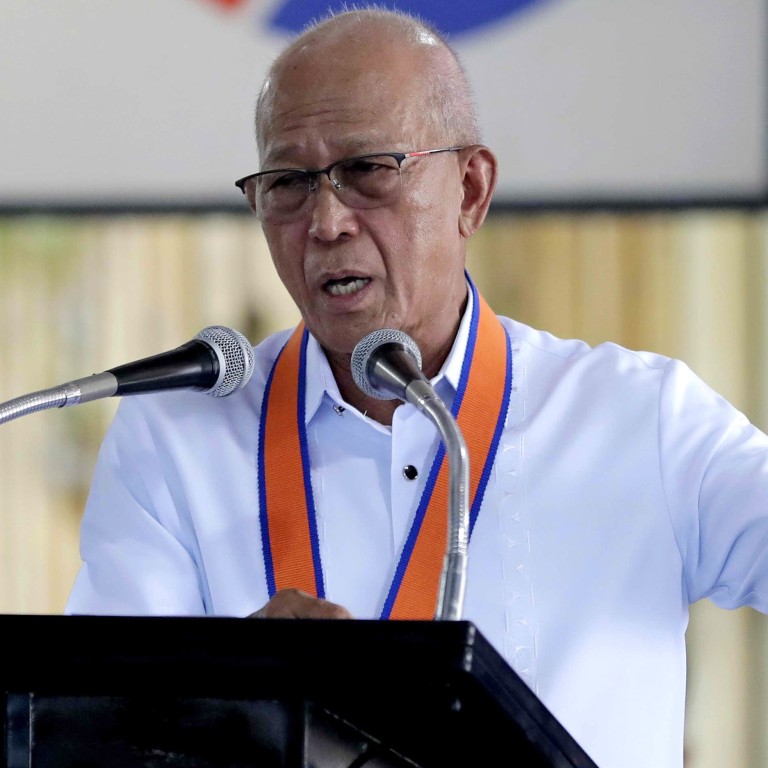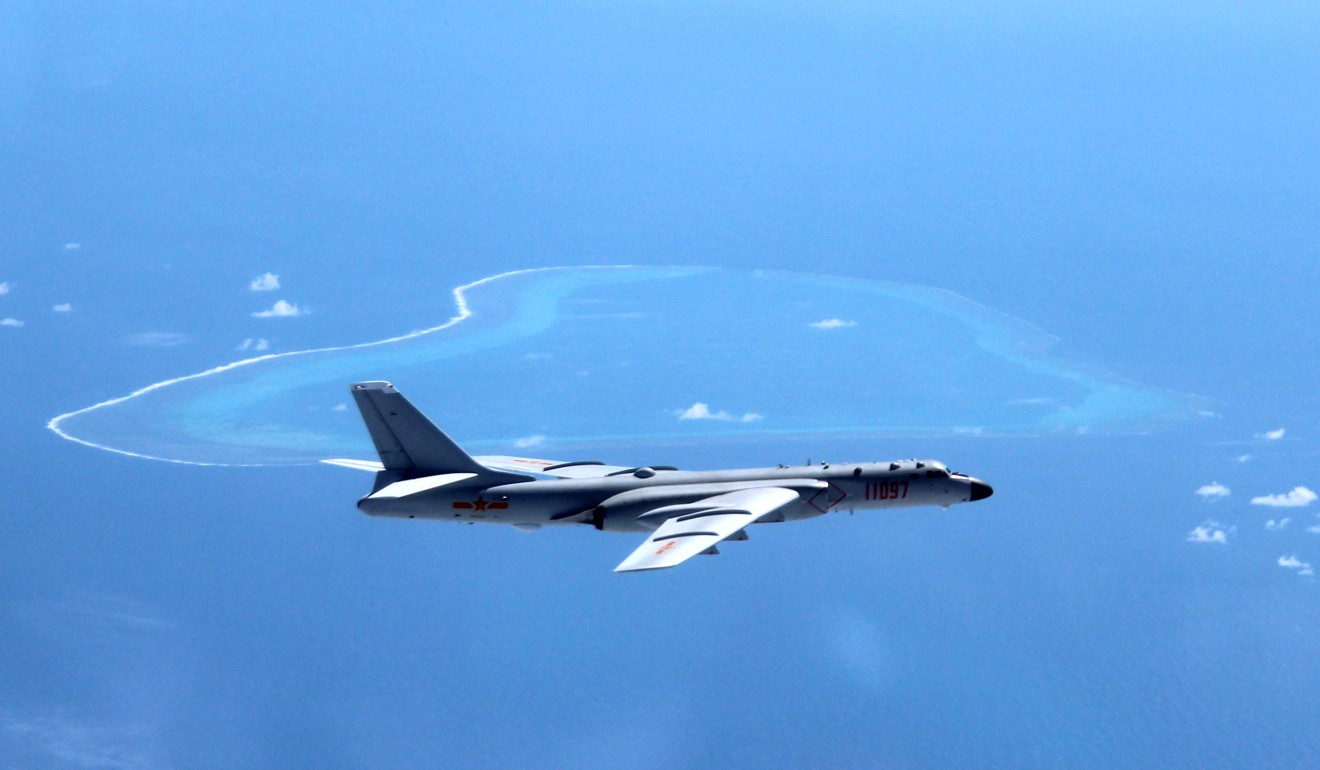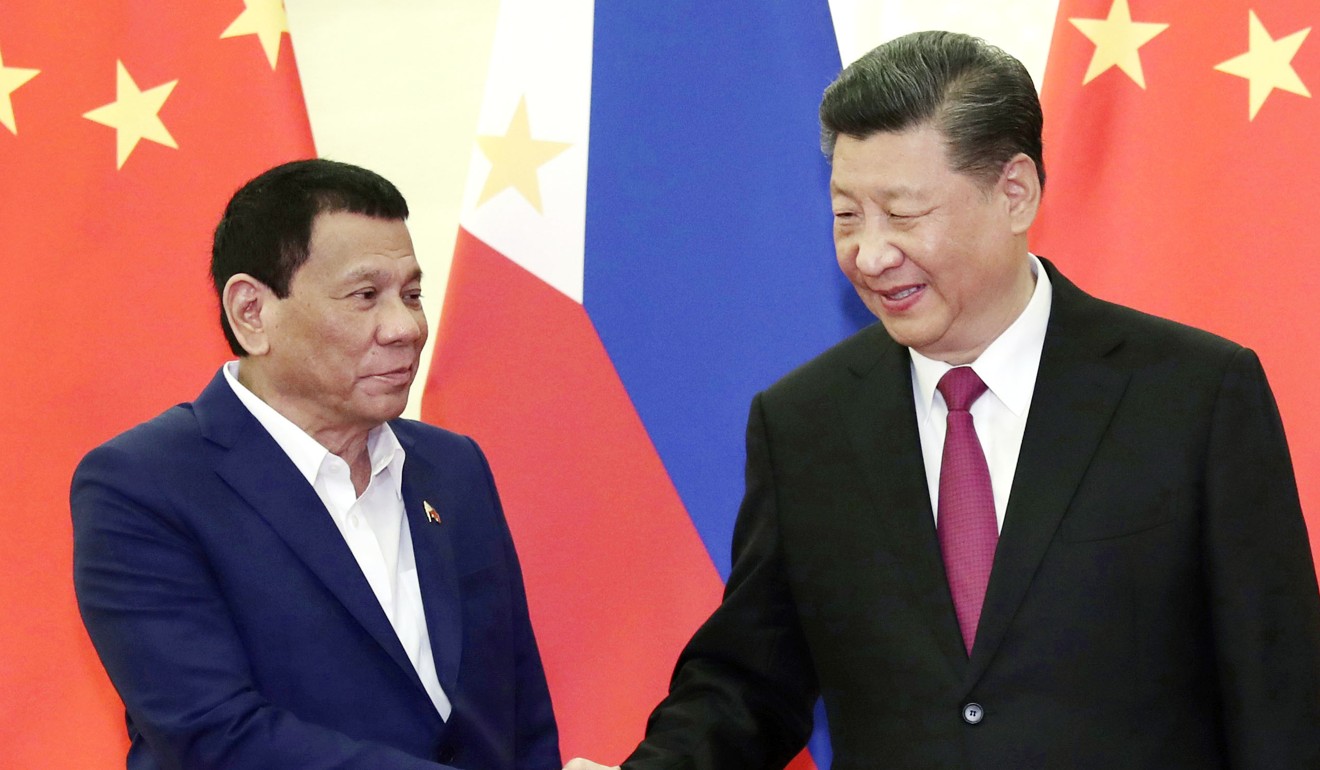
Philippine defence chief accuses Beijing of ‘bullying’ over claims in the South China Sea
- Defence Secretary Delfin Lorenzana made the remark a day after expressing hope for closer military ties with China
- Although the two sentiments seem at odds, analysts say they are consistent with the Beijing-friendly stance of President Rodrigo Duterte
Defence Secretary Delfin Lorenzana said on Tuesday that Beijing’s actions in the West Philippine Sea, including its seizure and occupation of the Scarborough Shoal in 2012, flew in the face of its claims of wanting peace in the region.

Asked during a briefing with reporters if China’s behaviour constituted “bullying,” Lorenzana was quoted by Rappler as saying: “Well, the way they took over Scarborough Shoal, to me that was bullying.”
China took control of the shoal, which lies 200km off the Philippine coast, in 2012 following a weeks-long stand-off between Chinese and Philippine vessels in the surrounding waters, which are home to rich fishing stocks. Beijing has flatly rejected a 2016 ruling by The Hague-based Permanent Court of Arbitration that found its actions violated Manila’s sovereign rights.
Lorenzana’s broadside on Tuesday followed a laudatory speech on Philippine-China relations the day before in which the defence chief expressed hope for greater military cooperation with Beijing, even as the Southeast Asian country pursues a constitutionally mandated “independent” foreign policy.
Beijing’s South China Sea stance is driving Vietnam into America’s arms
At an event organised by the Chinese embassy on Monday to mark the 92nd anniversary of the founding of the People’s Liberation Army, Lorenzana said he anticipated further “productive and beneficial cooperation and partnership agreements” with the Chinese military, in addition to ongoing dialogue on terrorism and other areas of mutual concern.
“Our country’s defence force joins you not only in your celebration, but also in manifesting the values of solidarity and amity with the rest of the world, affirming our strong equipment [sic] to peace, security, and stability in the world,” Lorenzana said during the event held at the Makati Shangri-La hotel in Metro Manila.
Zhang Baohuia, a professor of political science at Lingnan University in Hong Kong, said Lorenzana’s remarks were consistent with the Dueterte administration’s stance on China.
“While Duterte has been eager to cultivate a new relationship with China, the Philippine military occasionally voices concerns for China’s policies in disputed areas,” he said. “So the Defence Ministry’s benign signalling shows a greater convergence of Duterte’s China policy and that of the military, at least on paper.”
During his speech on Monday, Lorenzana also defended Duterte’s “middle ground position” on the West Philippine Sea, which critics have complained sells out the country’s interests in favour of Beijing.
Duterte says he allows Chinese vessels to fish in Philippine waters to prevent war
In a survey by Pulse Asia Research released last week, 74 per cent of Filipinos said they had little or no trust in China, a 13-point plunge in trust since March.
Jay L. Batongbacal, an associate professor at the University of the Philippines’ College of Law, said that the defence chief’s rhetorical U-turn may reflect souring public attitudes toward China.
“He knows and cannot deny the sentiments of the public, and I am sure the dissatisfaction is also reflected within the armed forces,” he said.
Future military cooperation between Manila and Beijing would likely be confined to lower-level cooperation such as visits, information-sharing and training, according to Batongbacal.

“Arms deals would also likely be in less controversial categories such as small or personal arms, non-lethal hardware like transportation equipment, and similar items that do not directly affect or imperil standing alliance relations,” he said, referring to Manila’s decades-old mutual defence treaty with the United States.
“China-Philippines ties are cordial and non-antagonistic. But I don’t believe that the two parties have fully identified or settled what their common interests in security and peace really are.”
Patricio Abinales, a Philippines expert at the University of Hawaii at Manoa, said Beijing would opt to assist with domestic security issues, such as continuing to provide weapons to help fight Islamic separatists in Mindanao province, rather than providing support that could be used to challenge its own foreign policy objectives.
Connect with us on Twitter and Facebook

